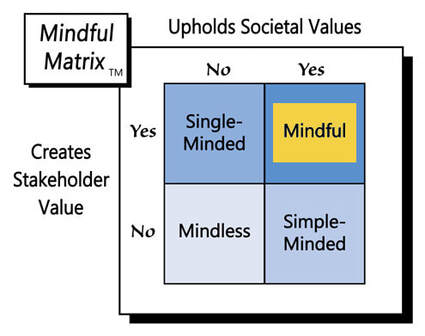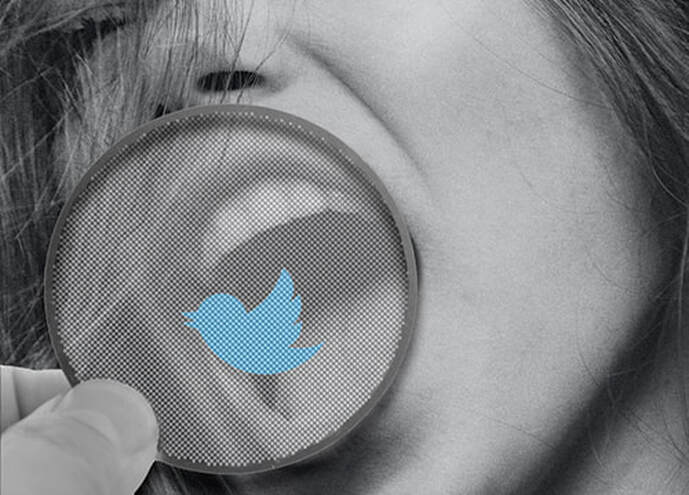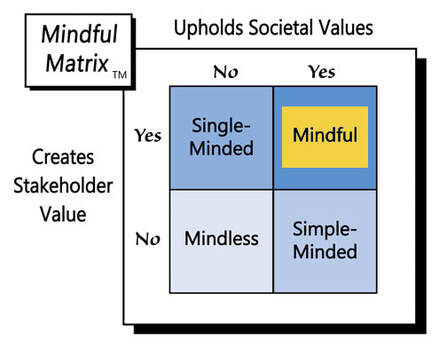author of Honorable Influence - founder of Mindful Marketing
On May 17, Long Island resident Justin Chimienti filed a legal action in a Brooklyn federal court, accusing both Wendy’s and McDonald’s of “defrauding customers with ads that make burgers appear larger than they actually are.”
The lawsuit alleges that the restaurants’ use of undercooked beef in photo shoots leads to promotional pieces with burgers that appear 15% to 20% larger than those customers actually receive. The suit also suggests that Wendy’s exaggerates the toppings that embellish its sandwiches.
Burger King, the third of the big three fast food competitors, was slapped with a similar lawsuit just over a month ago. In fact, the same law firms that sued BK are also representing Chimienti in the most recent litigation.
To many, these lawsuits are the epitome of money-grabbing lawyers eager to profit from a first-world problem--With so many truly important events happening in our world, why should anyone worry that Whoppers aren’t as juicy as they appear in their pictures?
However, Anthony Russo, one of the main attorneys representing the plaintiff, argues that there’s a bigger issue at play--corporate accountability. He maintains that these legal actions will make the companies mend their ways, stop false and misleading advertising, and ultimately give consumers a better idea of the food they’re eating.
That justification sounds good, but it does come from one of the people who stands to gain the most from the litigation. In fact:
“A detailed examination of eight years of consumer class actions in federal court found that consumers received only a tiny fraction of the money awarded in those cases while plaintiff lawyers frequently claimed a bigger share of the settlement than their clients.”
Still, legal action can be an effective way to bring about corporate change, and it usually takes attorneys to move such proceedings through the courts.
Imagining the burger court cases, the defendants might offer a counterargument like:
"When it comes to promoting themselves, don’t individuals and organizations have a right to ‘put their best foot forward,’ and doesn’t everyone expect others to do the same?"
Most people don’t have sections of their resumes labeled ‘Main Flaws’ or ‘Greatest Failures’; instead, we list our ‘Special Skills’ and describe ‘Awards and Recognitions.’ Likewise, no one reviewing resumes expects to see those self-deprecating categories. That’s why interviewers often ask job candidates things like, “Tell me about one of your weaknesses.”
So, shouldn’t companies also be allowed to brag a little and show their best examples versus humiliate themselves with mediocre or bad ones?
Curating top quality products for promotion certainly isn’t unique to fast food chains. Grocery store flyers rarely feature misshapen fruits and vegetables, car commercials don’t use vehicles with scratches or dents, and clothing ads don’t show shirts that are wrinkled or frayed.
As consumers, not only do we routinely see such examples, many of us are involved in the same sort of careful curation of ourselves and the organizations we serve.
During my two-plus decades in higher education, I’ve often helped select ‘best’ examples to help promote my department and university. For instance, when asked to suggest students or alumni who might provide a testimonial, I take plenty of time to think before offering names of individuals who I believe have had very positive experiences.
However, just because we engage in such selective promotion doesn’t mean that we should, i.e., we need to be careful about reasoning from ‘is’ to ‘ought.’
The main moral questions to ask are whether the recipients of the promotion are deceived and harmed.
Personally, I don’t feel misled by pictures of perfect peaches, super clean cars, or spotless shirts. Most people also probably expect the actual items they buy to have at least some minor imperfections when compared to their pictured counterparts.
Depending on the nature and cost of the product, there’s a level below perfect condition that we readily accept knowing that we live in an imperfect world. Furthermore, in terms of food, visual imperfections probably don’t matter as much as they do for many other products because although we eat with our eyes, the appearance of what’s on our plates is short-lived.
That takes us back to burgers and the main moral questions:
Do differences between what Burger King, McDonald’s, and Wendy’s depict in their ads and sell in their stores deceive and harm consumers?
First, it’s important to recognize that for the vast majority of consumers, these fast food restaurants’ ads represent reminder advertising, i.e., most people have already eaten in one or more of the chains, possibly multiple times, so they’re well aware of what they’ll receive the next time they visit.
Second, fast food is a rather low-involvement, low-risk purchase. When deciding what to order, people typically spend a minute or less, not hours, days, or weeks, as they might when selecting some products. Likewise, the average McDonald’s Big Mac Meal costs only $5.99, and customers can buy two cheeseburgers for just $2.00. So, if the beef patties don’t look quite as pretty as the pictures, it’s no big loss.
All that said, there is a difference between misrepresenting quality and misrepresenting quantity. Whether burgers look more or less appealing than their pictures is a somewhat subjective matter. Size is not. People almost always want to get more product for their money, not less, so it’s a problem if a burger’s picture looks 50% bigger than the one we actually receive.
In this sense, the burger lawsuits have more teeth. Consumers will quickly forget whether the Big Mac Meal looked as good in person as it did in the picture, but they won’t forget if they’re still hungry after eating it, especially if they have no more meal money to spend.
Although that’s not a life-threatening problem on par with those mentioned at the outset of this piece, it is a legitimate consumer concern, particularly in inflationary times. Whether they’re spending a lot or a little, people should always receive the amount of product they’re promised.
So, there is a plausible and practical component to the burger lawsuits; however, their bigger contribution is their call for accountability, which also may mean modeling more genuine communication.
It’s not to say that people take their communication cues directly from fast food ads, yet there’s an unsettling resemblance between the idealized product promotions and the utopian pictures many individuals paint of themselves in social media.
When people see large, heavily advertised corporations like Burger King, McDonald’s, and Wendy’s freely exaggerating and glamorizing their truths, it implies permission for others to do the same.
The world becomes a better place when individuals and organizations take care to represent themselves realistically. It’s okay to put our best foot forward, but it must be our foot, not some fantastical version of it. Those who walk with realism are stepping into “Mindful Marketing.”
Learn more about the Mindful Matrix.
Check out Mindful Marketing Ads and Vote your Mind!







 RSS Feed
RSS Feed